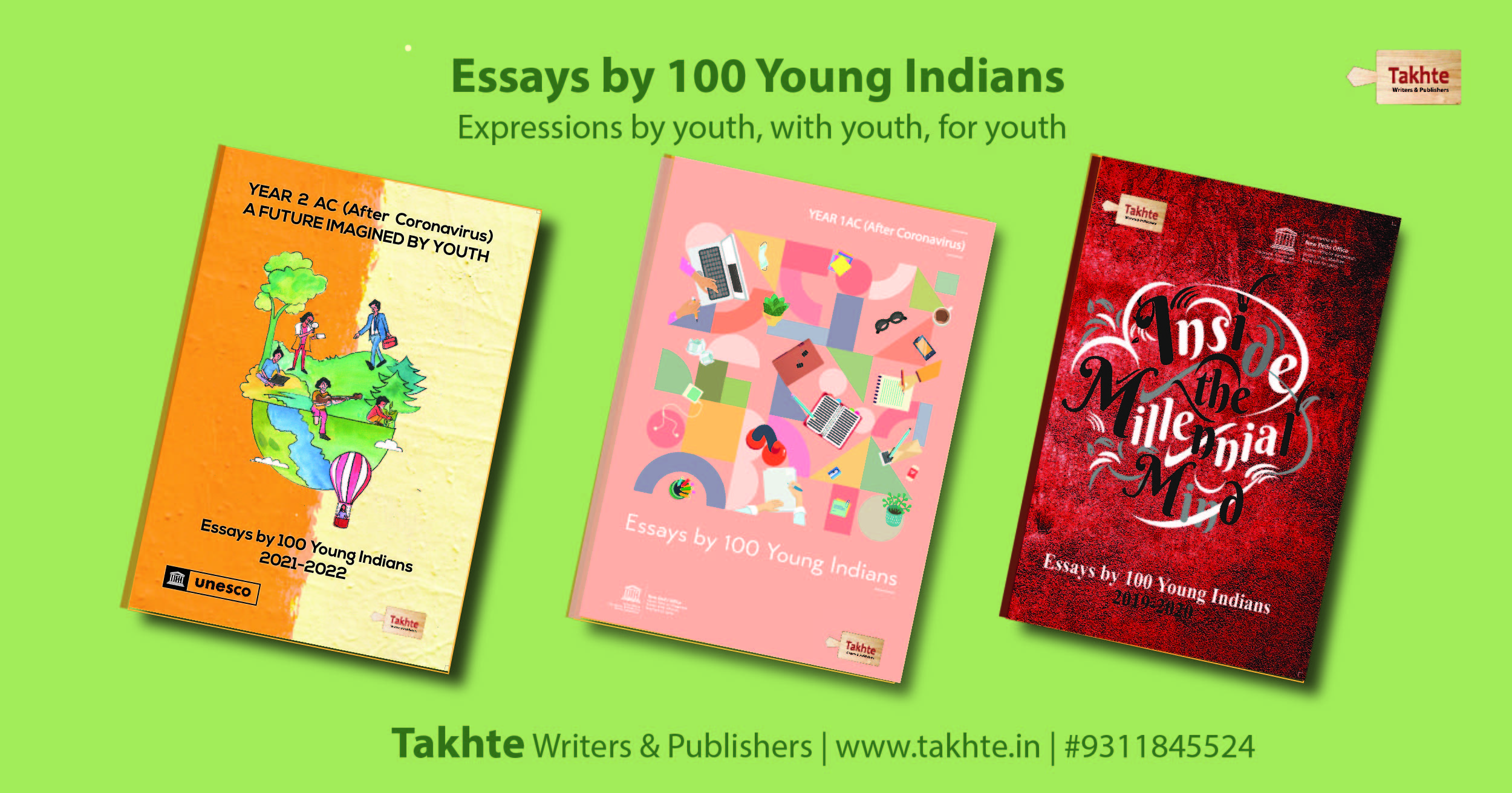Short-story
The Sour Curd
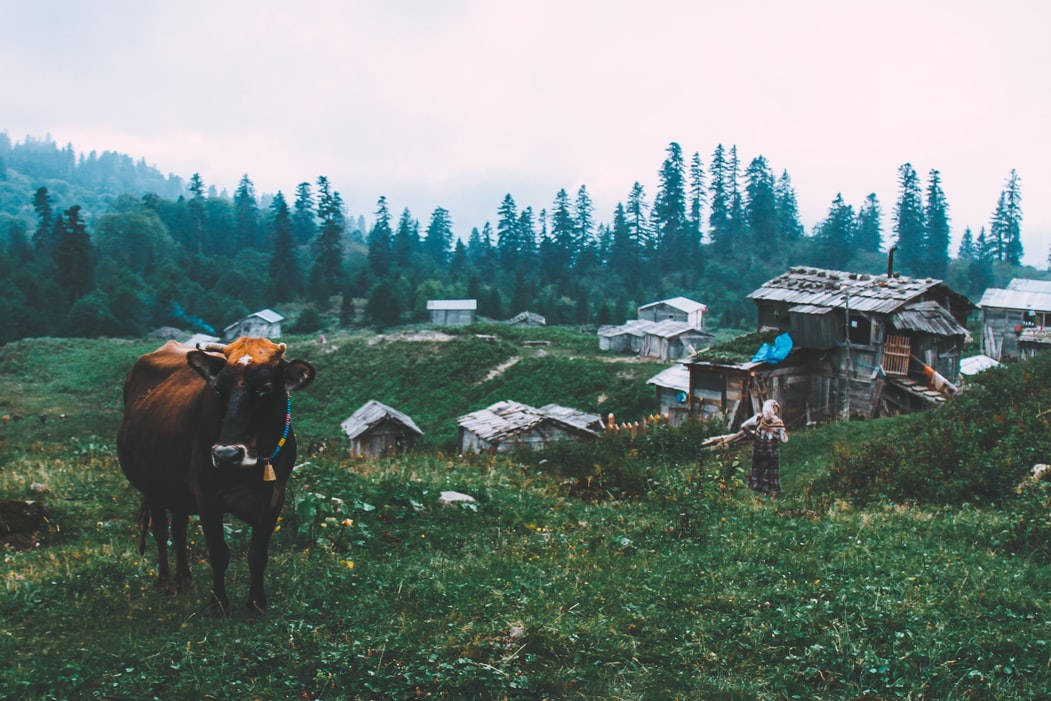
Chaitanyamoi Chetia
St. Joseph’s High School, Moranhat, Assam
Bijit cultivated a new habit of playing games on his mobile phone called Minecraft; he remains busy throughout the day doing the same activity. Moreover, post-COVID the regular school is replaced with online classes. In the morning he goes cycling through the lanes of the large area having grazing field idle for cows and goats to graze. A train line passes through the area and the whistle of the train while whistling can be heard to a long distance. In the evening, Bijit and his father bring their cows and goats from the pasture to the cowshed and the loafing benches.
“Bijit, your duty is to bring the cattle in the afternoon from the grazing field every day, because from tomorrow I shall confine myself to other works,” his father said.
In the morning, many boys of Bijit’s age ride bicycles. Once, while cycling, a new friendship developed between Tridip and him.
“I am riding my father’s bicycle; it is an old modelled one in comparison to yours because your bicycle is having five gears,” he told Tridip.
Tridip replied in the affirmative.
There are instances while bicycling they both rest for a while standing by the side of the road with bicycles in their hand. They loved looking at the plucking of tea leaves of a tea garden plucked by women. Sometimes, they even reach distant places by bicycle.
“Let us go to the Thowra dole (temple) tomorrow: this dole is more than 300 years old and is preserved by the Assam Government. There is also a lake by the side of the dole; we will touch the water of the lake and view the dole closely,” Tridip suggested Bijit.
“I shall have to take my father’s permission because this is my father’s bicycle and he needs it most of the time,” he told Tridip.
Bijit’s house is on the outskirts of the town and his father has to go to the town to purchase daily a few stationary goods, grocery and medicines for the cattle.
“I want to go to the Thowra dole which is a few kilometres away from here; can I take your bicycle tomorrow?” he asked his father.
“I shall have to go to the market to purchase a mineral supplement for cattle; I shall have to purchase forage, hay and grain. After my return, you can take my cycle, but make sure you arrive home before the sun sets because the cows and the goats will have to be brought back from the grazing field,” his father said.
Bijit’s father is enlarging the shed and the pen; his father has been giving interest in vegetation and cattle rearing for many years so that the family members can be self-sufficient, at least, to some extent.
Sometimes, Bijit plucks spinach, coriander leaves and leafy vegetables from their garden: sometimes he waters them and before dusk, he goes to the grazing field to bring back his cattle. He got the area of his house bordered with bamboos. The tall banana trees and the guava tree laden with fruits in his house can be viewed standing on the road.
Recently, his father and he constructed the shed floor for goats with bamboos with an elevated area to prevent water stagnation and it was built above the ground level so that it can be cleaned easily. He started giving more interest to the shed floor, and it was carefully constructed with proper ventilation with a thatched roof.
During the daytime with their bicycles, they started their journey to the Thowra dole. “Many things have changed very quickly. The busy road has been made into four lanes; in the beginning, only one passenger train used to run in the morning; now many trains move every day starting from the express train to goods train,” Bijit told Tridip while both were cycling.
“There are many monkeys in your area!” Tridip told Bijit while he saw a few monkeys crossing the street.
“Yes,” Bijit said, “I have been witnessing them daily in the street: earlier they were confined to forests only: now due to deforestation for building new houses, they roam many kilometres in search of food; some monkeys also have become dependent on human beings for edibles in urban areas.”
“Are you milking your cow?” Tridip asked.
“Yes,” Bijit answered.
After cycling a long distance, they reached the dole and the lake. “It took us almost an hour to reach our destination. The view of the dole and the lake look mesmerizing,” Tridip told Bijit in great happiness.
“I am hearing the whistle of the train! Have my cattle arrived home safely?” he wondered, “I will have to bring them back to the cowshed and the pen immediately after arriving home.”
Just then, Bijit’s mobile phone began to ring. The sentence was like a blow to him. “One of our cows is run down by an express train,” his mother said, “the space for accessing the entrance door and the place for moving around in our front verandah is spoilt by a troop of monkeys by throwing the half-eaten guavas onto the main door as well as to the verandah and ran away.”
“Mother, who told you?” Bijit questioned.
“A cowherd of our area,” she answered.
“I shall reach quickly, mother,” Bijit said
While he was wondering these things in his mind, Tridip went away somewhere on his bicycle without telling him anything. Standing near the dole he could see looking at the paddy fields the herdsmen bringing their cows to their homes.
“Now it is time to depart,” Bijit thought. Walking here and there, he searched and searched but couldn’t find his friend.
“Where has he gone without telling me anything!” Bijit wondered.
Tridip bicycled to a village that was popular for both buffalo curd and the gamocha (a towel) weaved by the weavers.
Bijit waited for many minutes, but his friend didn’t return till then. He was perplexed and confused whether he should bicycle a long distance alone, or wait a little more for Tridip’s arrival.
“It will not be safe on my part to bicycle alone such a long distance; besides, where shall I sleep the night here if my friend doesn’t arrive?” in great despair and agony Bijit questioned himself.
“Where have you gone! I have been waiting for you since you disappeared from this place. Come soon, we are getting late: I have a great many things to do at home,” he told Tridip with his mobile phone.
“I am busy tasting the buffalo curd; it is so tasty!” he said. He also told him that he was enjoying looking at the gamochas prepared by the weavers. “I will be late; you may go alone if you want!” Tridip answered.
Bijit became furious at his friend’s answer.
“I accompanied him to this place since he assured me that we shall arrive home before the sunsets. Now, why Tridip is telling me in this way; why he has changed his mind. Should I jump in the lake and drown myself: or I should bicycle a long distance to home alone,” in great regret Bijit began to wonder.
He gathered strength in his heart and started bicycling. It was already dark then. Reaching home, he saw his mother sweeping the front verandah made dirty by the monkeys. She told Bijit in anxiety, “The goats and the kids have arrived. Take the torchlight and see the place where our cows are run down!”
He immediately took the torchlight and went to the grazing field: alighting the torch he searched from the railway track to the grazing field, but he couldn’t find any carcass of any animal.
He left that place and came up to the street. Near a bridge under a street light, he saw a cow kneeling and rechewing and re-swallowing its food and the cattle was near its mother. He came closer to the cow and saw thoroughly from back to front and he could confidently conclude that it was their cows. “I got them!” he exclaimed in happiness.
He pulled the cow with his hand and the cow stood; he slowly brought them to the cowshed.
He called up Tridip and said, “You are not my friend anymore, you lied and betrayed”.
His friendship turned sour.
Short-story
The Abandoned Soul
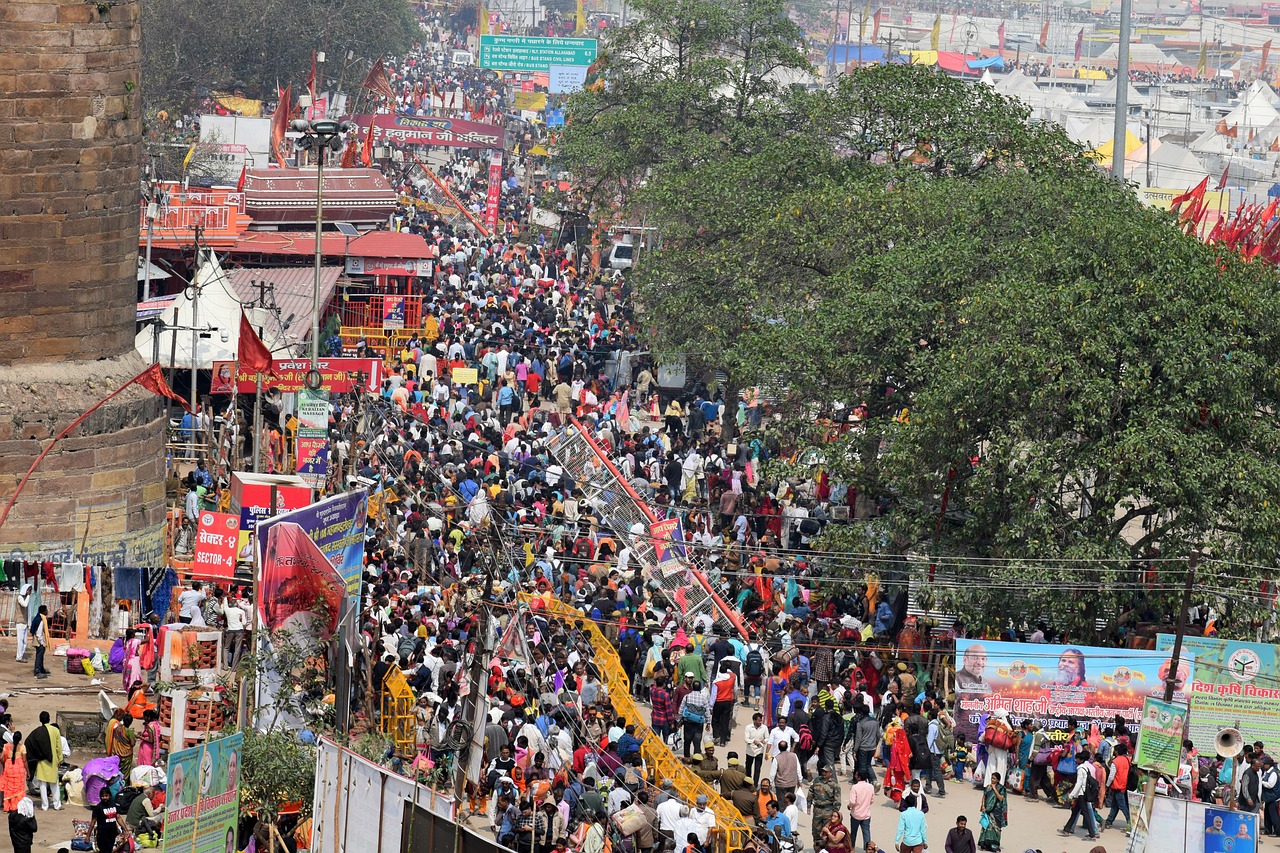
Short Stories – Kumbh Series
Garvit Agarwal
Lucknow
Writer attended a Creative Writing Course by Takhte Writers and Publishers
The sun hung low over the Kumbh Mela, casting a warm golden hue across the throngs of devotees gathered along the banks of the sacred Ganges. The air buzzed with chants, laughter, and the rustling of colourful saris flapping in the wind. Pulkit and Ragini moved through the crowd, their hands intertwined but their expressions distant.
“Look at them, Ragini,” Pulkit said, forcing a smile as he gestured toward a group of children splashing in the water. “So carefree.”
“Carefree,” she echoed, her voice tinged with bitterness. “Must be nice.” Her gaze drifted to their son, Akash, who stood a few paces behind them, his eyes wide as he took in the chaos around him. His fingers fidgeted with the hem of his shirt, a habit that had grown more pronounced in recent months.
“Let’s just find a spot,” Pulkit replied, his tone clipped. “We can’t stay here all day.”
As they settled near the ghat, the chanting grew louder, drowning out the silence that had settled between them. They exchanged a glance, a shared understanding of the growing weight of their decision.
“Pulkit,” Ragini began, her voice shaking slightly. “Are we really—”
“We have to,” he interrupted, the determination in his eyes hardening. “It’s for the best.”
Hours passed, the sun dipping lower, casting long shadows on the ground. Ragini watched as Pulkit knelt beside Akash, who was now fixated on a butterfly fluttering nearby. “Hey, buddy,” Pulkit said, his voice softer than before. “Want to chase that?”
Akash didn’t respond, lost in his world. Ragini felt a pang in her heart but quickly pushed it away. They were here for a reason, after all.
“We should go,” Pulkit said, rising to his feet. “It’s time.”
“Pulkit, I—”
“Ragini, we’ve talked about this.” He took a deep breath, his brow furrowed. “We can’t keep pretending everything is fine.”
With a heavy heart, they turned their backs on their son, leaving him by the ghat. “I’ll be right back, Akash,” Pulkit called over his shoulder, though he didn’t look back.
As they walked away, Ragini felt the weight of their decision settle in her chest like a stone. The laughter and chanting faded into a dull thrum, replaced by the sound of her heartbeat.
Later, as they listened to the preachings of a saint, a shift occurred. The saint’s voice boomed through the crowd, reverberating deep within Ragini. “Love is the greatest sacrifice,” he proclaimed. “To abandon those we love is to abandon our very souls.”
Pulkit stiffened beside her. “Did you hear that?”
“Yes!” she whispered, her heart racing. “We need to go back.”
They rushed back to the ghat, but the crowd had thickened, and panic set in as their eyes searched frantically. “Akash!” Ragini called, her voice rising above the chaos. “Where are you?”
“Stay calm,” Pulkit urged, though his voice trembled. “He can’t have gone far.”
Hours turned into days, and the relentless search for their son felt like a nightmare from which they could not wake. Each day, they returned to the ghat, calling his name until their voices were hoarse.
“Why did we leave him?” Ragini sobbed one evening, her tears mixing with the river’s water as she knelt by the bank. “What have we done?”
Pulkit sank to the ground beside her, his own eyes brimming with regret. “I thought I was doing the right thing,” he murmured, his voice breaking.
“Where is he?” She cried, her heart shattered. “What if—what if he’s alone and scared?”
They were lost in their remorse, the vibrant colours of the Mela fading into a blur of sorrow. The river flowed steadily beside them, indifferent to their pain, as they clung to the hope that somehow, some way, they would find their son again.
Photo Courtesy – Mr Rajesh Balouria by Pixabay
Short-story
Triumph of Connection
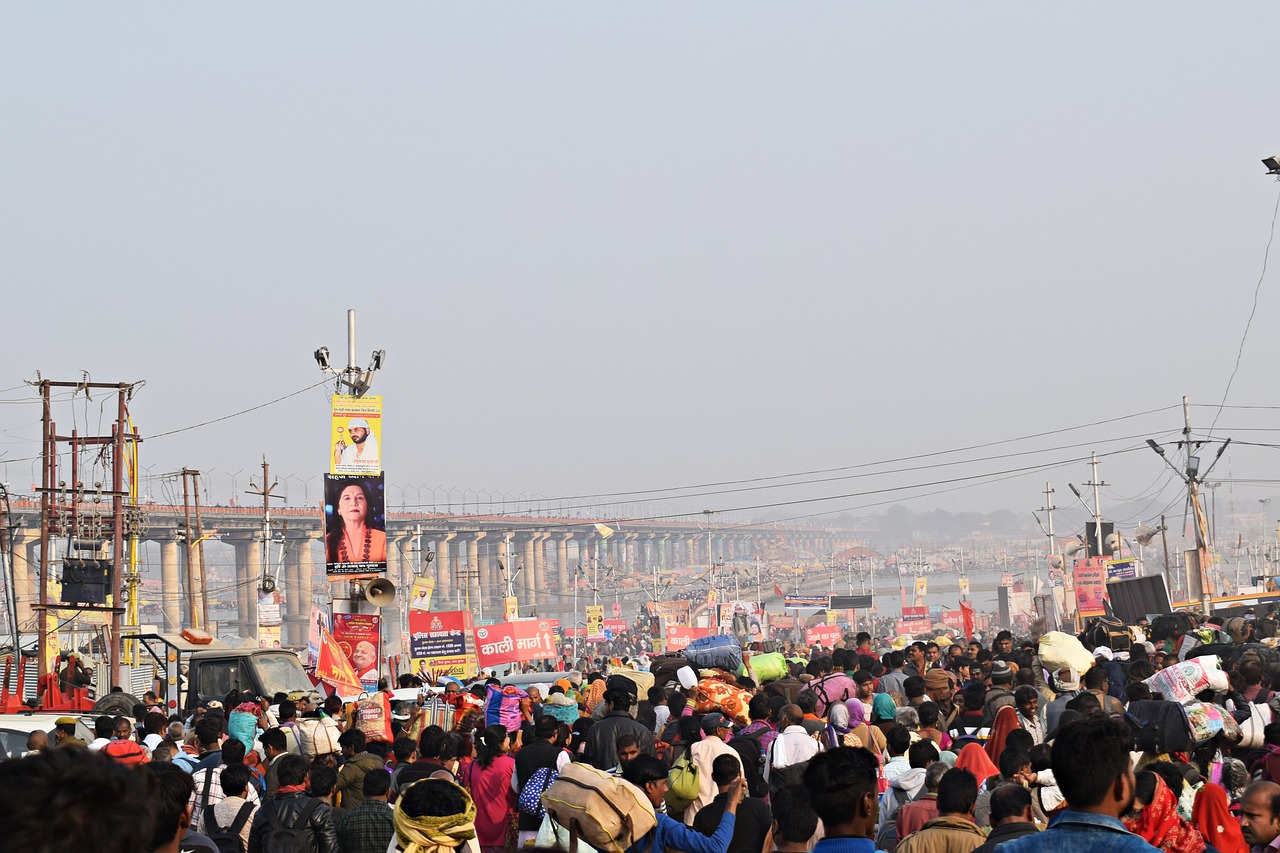
Short Stories – Kumbh Series
Rutbik Gupta
Bilaspur, Chattisgarh
Writer attended a Creative Writing Course by Takhte Writers and Publishers
The Kumbh Mela pulsed with life, colours swirling like a painter’s palette. Krish and Shreya squeezed through the throngs of pilgrims, their parents trailing behind, eyes wide with wonder. The air buzzed with chants, the scent of incense thick around them.
“Look at all those people!” Shreya shouted, her voice barely rising above the chaos. “I feel like we are in a river of heads!”
“Just stay close,” Krish replied, his grip tightening around her hand. “We can’t lose each other here.”
Suddenly, a small voice broke through the din. “Mama! Papa!” A boy, no older than six, stood alone, tears streaking his dusty cheeks. Krish’s heart sank.
“Shreya, we have to help him,” he said, kneeling to the boy’s level. “What’s your name?”
“Teerth,” he sniffled, wiping his nose on his sleeve. “I can’t find my parents!”
“Don’t worry, Teerth. We’ll help you,” Shreya promised, her voice softening. “Where did you last see them?”
“By the river… I was looking at the fish,” Teerth whimpered, glancing around, panic rising. “They were right there!”
“Okay, follow us,” Krish said, standing tall, determination setting in. “We’ll find them.”
They moved through the crowd, the rhythm of drums and chants echoing around them. Krish scanned each face, searching for a hint of recognition. Shreya whispered encouragement to Teerth, who clung to her hand.
“Look!” Shreya pointed, spotting a frantic couple searching through the crowd. “Teerth, is that them?”
Teerth’s eyes lit up. “Yes! Mama! Papa!” He bolted towards them, the sound of his small feet hitting against the ground.
Krish and Shreya exchanged relieved glances, hearts racing. The couple raised Teerth into their arms, tears streaming down their faces.
“Thank you! Thank you!” the mother cried, her voice breaking.
“Thank you so much, children. You’ve been our saviour”, said the father, with teary-eyed.
“No problem,” Krish said, a smile breaking through the tension. “Just doing what’s right.”
As the family embraced, Krish and Shreya shared a knowing glance. The chaos of Kumbh Mela swirled around them, but at that moment, they felt the triumph of connection.
Photo Courtesy – Mr Rajesh Balouria by Pixabay
Short-story
Fury of Tomato

Advika Bhatnagar
Shikshantar School, Gurugram
Grade 3
Alice, a nine-year-old boy, lived in the countryside of Tinseltown with his Granny. He was a stubborn and edgy child. He liked to eat whatever he wanted and didn’t care much about Granny’s words. This made the old lady very sad.
“Granny, Granny, hunger pangs! I want pizza and chocolate ice cream for dinner,” said Alice
“Wait, child, I’m making delicious chicken soup, healthy multigrain bread, and a fresh salad,” answered Granny.
Alice got angry when he saw salad on the dining table. He yelled, “Again, cucumber, bell pepper, carrot, and tomato. Is that what I will eat? “No, no, no, never, not at all. No dinner tonight.” Granny got worried and left the house to get his favourite food.
Alice was all alone. In anger, he picked up the tomato and threw it at the wall. The red pulp of the tomato almost covered the mid-wall. He was shocked to see the pulp turning into a monster.
“Ha, Ha, Ha, you stubborn boy. Every day I see you trouble your Granny for food. When you hit me against the wall today, I felt hurt. I will teach you a lesson. I am the new king of vegetables. I rule the meals,” said the tomato monster. And then the monster followed him everywhere in the room.
Alice was so scared that he was running in different directions. Sitting under the table, he quietly prayed, “Oh God, please save me from this deadly monster.”
Alice rushed to his Granny’s room, wears her hat and robe. He picks up the embroidered, favourite napkin of the Granny and moves slowly towards the wall. He wipes the tomato pulp, and the monster disappears right away.
Alice gets the lesson of his life to value all food. He vows to take care of Granny, as her belongings protect him. When she was back, he hugged her and said, “I love you so much. I will eat whatever you cook for me.”
The writer attended Takhte Writers & Publishers’ Story Writing Writeshop at Kalasthali, Gurugram.
Photo Courtesy – Andre Taissin (xRUJcUTEp6Y) Unsplash
-

 Uncategorized3 years ago
Uncategorized3 years agoOnline Elocution Contest
-

 Poems4 years ago
Poems4 years agoPoems
-

 Legal Talks4 years ago
Legal Talks4 years agoCUSTODIAL RAPE IN LIGHT OF THE MATHURA GANG RAPE CASE
-
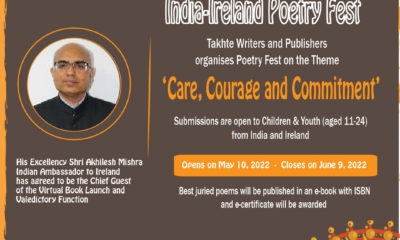
 Poems3 years ago
Poems3 years agoIndia-Ireland Poetry Fest
-

 Legal Talks4 years ago
Legal Talks4 years agoCompliances Relating to the Commercialization of Electronic Devices
-
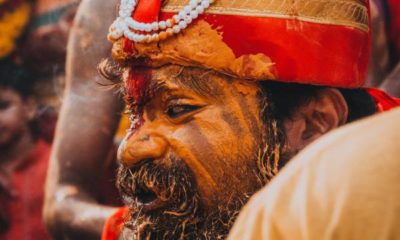
 Art & Culture4 years ago
Art & Culture4 years agoThe Lore of the Days of Yore: Significance of History
-

 Legal Talks4 years ago
Legal Talks4 years agoPrivacy Laws & Consent while using Image of Random People Clicked on Street for Facial Recognition
-
Short-story4 years ago
Bibek’s visit at his friend’s bungalow


